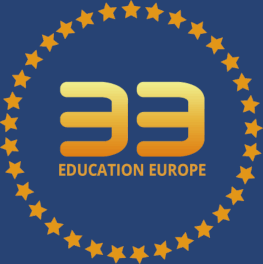Quick facts
- Population: 66,759,950 (2016)
- Capital: Paris
- Geographical size: 632,833.6 km2
- GDP: € 2.225 trillion (2016)
- Official EU language(s): French
- Currency: Euro
Higher education in France
- Number of higher education institutions: 3,500
- Number of students in higher education: 2,296,300 (2012, Euromonitor International from national statistics/UNESCO)
- Number of international students in higher education: 256,261 (2012, UNESCO)
- Language of instruction: Most higher education programmes in France are taught in French language but you will find over 1100 courses taught in English too
- Typical tuition fees:
- Annual tuition rates at public institutions are:
- Around €190 for Bachelor’s programmes
- Around €260 for Master’s programmes
- Around €400 for Doctoral/PhD programmes
- Around €615 for programmes leading to the French diplôme d’ingénieur
- Tuition rates at private institutions – particularly schools of business and management – are generally higher (from €3,000 to €10,000 annually).
- Average length of a full-time higher education programme in France:
- Bachelor’s degree programme: 3 years
- Master’s degree programme: 2 years
- Doctorate/PhD: 3 years
Overview
The quality of French higher education is widely recognised throughout the world. Today, with more than 295,000 international students making up 12% of total postsecondary enrolments, France is the third most popular destination for internationally mobile students.
France benefits from a long tradition of scientific and technological research and innovation that underpins the nation’s achievements in fields such as aeronautics and space, transportation, electronics, telecommunications, chemistry, biotechnologies, health and mathematics.
With 75 universities, more than 200 schools of engineering, 200 schools of business and management, 120 public post-secondary schools of art, 20 schools of architecture, and 3,000 other specialised institutes and schools in specific sectors such as social work, the allied health professions, tourism, sports, fashion, and design together represent an immense diversity of educational programmes that respond to the full spectrum of students’ academic and professional objectives.
The range of subjects taught in English is widening. More than 1,100 programmes in a variety of fields are now offered in English throughout France.
France invests substantial public funds in higher education. The French government assumes a very large share of the actual cost of every student’s education (more than €11,000 per student per year). This national focus has several implications – among them that French tuition charges are among the lowest in the world; that degrees from France are equivalent regardless of the institution that grants them; and that those degrees are recognised around the world.
In France, higher education programmes are grounded in accredited research laboratories or the knowledge of seasoned professionals: whatever your field of study, you will always be in contact with renowned experts. France’s universities and other educational institutions do not distinguish between international students and French students. Both groups face identical admission and tuition requirements; both receive the same degrees.
10 good reasons for studying in France:
- Study programmes subsidised by the French government
- Quality of higher education, adapted to students’ needs
- A sophisticated research enterprise
- A world-class economic power
- Advanced industries and international corporations that are leaders in their field
- An environment favourable to innovation and to young entrepreneurs
- A pleasant and satisfying style of life in the heart of Europe
- The art of living ‘à la française’
- French, an international language
- An appealing destination for international students











It is a long established fact that a reader will be distracted by the readable content of a page when looking at its layout.
The point of using Lorem Ipsum is that it has a more-or-less normal distribution of letters, as opposed to using ‘Content here, content here’, making it look like readable English.
Many desktop publishing packages and web page editors now use Lorem Ipsum as their default model text, and a search for ‘lorem ipsum’ will uncover many web sites still in their infancy.
This book is a treatise on the theory of ethics, very popular during the Renaissance.